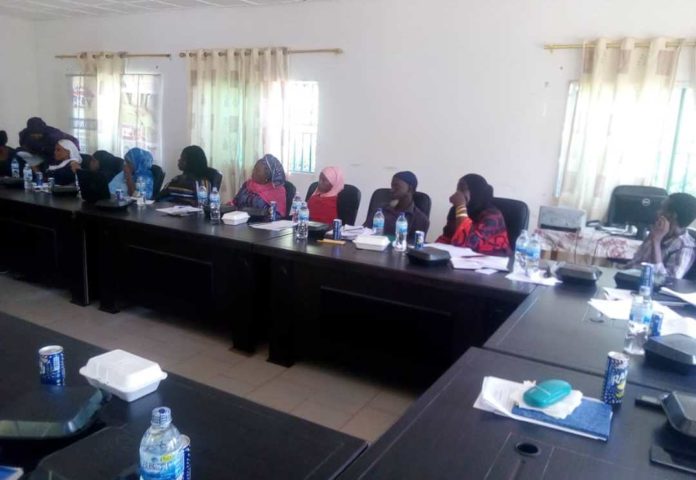By Louise Jobe
The National Agricultural Research Institute (NARI) in partnership with the Food and Agriculture Organisation of the United Nations (FAO), has commenced a five day training on Rice and PVS on Monday June 10th 2019, at their Conference Center at Brikama Campus. The objective of the training, according to the organisers, is to provide participants with theoretical knowledge on modern plant breeding methods and techniques.
In his statement, Professor Moussa Si, an expert in Agriculture and Seed Systems asserted that the Gambia is a net importer of food and produces only half of its national requirements of staples, due to some deficit in the Agriculture sector; that the Government’s effort in addressing the deficit in the Agriculture sector, has resulted in the design of a project with the aim of creating sustainable production and productivity of crops and livestock. The project he said aims to reduce food insecurity and malnutrition and create the enabling environment for an improved national economic development.
Si said it is against this backdrop that the FAO is providing the technical and financial assistances to train young breeders in the Gambia, on the concepts and principles of plant breeding. “This workshop will enable participants to identify appropriate breeding methodologies to be adopted at each step of the crop’s improvement program,” Professor Si said.
Prof. Si further indicated that the course aims to provide knowledge to participants to enable them to develop the next generation of breeders using modern tools for enhancing precision and efficiency of their breeding programs. This, he said, should provide them with a theoretical background on modern breeding methods and techniques including the use of biotechnology, planning and information management tools and experimental techniques and software. He added that the training will provide participants the opportunity to share experience with the other rice breeders on latest updates on areas relevant to breeding and the worldwide exchange of rice genetic resources. He said that the training module is for breeders and agronomists working on a variety of development or tests in the public and private sector, and called on the participants to take the training seriously.
Babucarr Gibba, a participant from NARI said in an interview that the training is an opportunity for them and will help them build their capacity in carrying out breeding procedures. He pointed out that the rationale behind training is to give the opportunity to NARI’s young researchers to have the skills and knowledge in breeding procedures and to prepare them to be professional rice breeders for the country.
The training commenced with an assessment test on general skills and ability and some basic knowledge on crop breeding, in order to assess the present status of participants.
According to the organisers, participants are expected to adopt good principles of breeding methodologies as well as improve the quality of their research and enhance their knowledge on plant breeding, after the course.
















